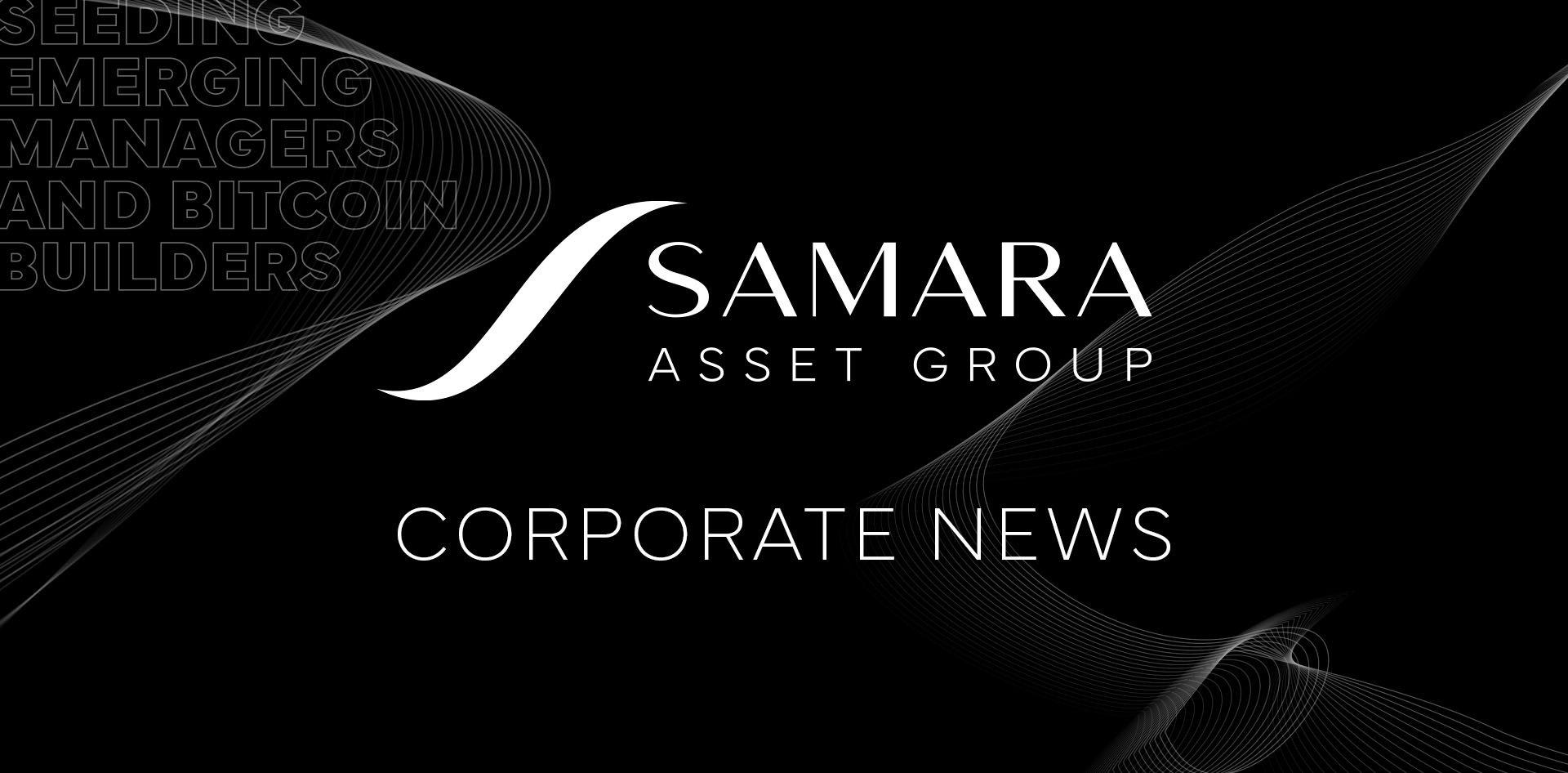
Ripple’s Victory Over the SEC Marks a Win for Crypto, While Bitcoin Spot ETF Applications Get A Second Chance
August 1, 2023





Stay up to date with our monthly market commentary:
- Ripple winning its SEC lawsuit marks a win for the digital asset industry in the U.S.
- Wall Street refilled all of its Bitcoin ETF applications.
- Bitcoin (BTC) is down 3.7%, while Ether (ETH) dropped 0.5% versus last month.*
Table of Contents
Market Overview - July
July bode well for the crypto and digital asset industry, mainly due to the renewed applications of spot Bitcoin ETFs and the recent judgment in the Ripple vs. SEC lawsuit.
While Bitcoin didn’t profit directly from another round of applications of all the Bitcoin ETFs that were filed, the reaction by the SEC was a positive sign. In contrast, last month the SEC initially denied all applications because they deemed the latest applications inadequate, particularly the sections related to a novel surveillance-sharing agreement with a spot-trading Bitcoin platform.
This didn’t hold back BlackRock, Fidelity, and the other would-be spot Bitcoin ETF issuers from adapting their applications and refiling. So far, these changes seem to have worked, as the SEC has accepted the renewed applications and is now looking closer at whether these Bitcoin Spot ETFs could start trading on U.S. securities exchanges in the near future.
Accepting the renewed applications is indicates the desire to offer digital assets, or at least Bitcoin (BTC), within a regulated environment.
The involvement of institutions like BlackRock and Fidelity would likely lead to increased investor funds flowing into Bitcoin, potentially boosting the overall growth of the Bitcoin ecosystem, which, in turn, could lead to better products and services for Bitcoin users and investors.
The SEC also played an essential role in the second most industry-relevant event in July: the judgment in the lawsuit by the SEC against Ripple. In it, the SEC argued that Ripple’s XRP token is a security and that the company, Ripple Labs, violated various securities laws. However, a U.S. District Judge disagreed.
U.S. District Judge Analisa Torres ruled that the XRP token was not a security when sold to the public on secondary market exchanges.
While Judge Torres also ruled that XRP could be treated as a security when sold to sophisticated investors, the wider crypto investor community and the digital asset industry in the U.S. considered her ruling a win.
Numerous altcoins, most notably XRP, rallied substantially following the ruling, and several industry leaders rejoiced about the outcome as it could set the tone for a more crypto-friendly regulatory framework in the U.S. in the future.
Crypto Asset Market Performance Review
July was a good month for alternative cryptocurrencies. Ripple’s XRP and Solana’s SOL tokens were the top performers, with rallies of 48% and 52%, respectively, boosted by the Ripple verdict, which suggests that most cryptocurrencies may end up not being classified as securities in the U.S. after all. Most altcoins finished July on a high.

Since its inception in 2020, Solana has gained a big following. Within two years, the layer-1 blockchain established itself as an alternative to the high-fee Ethereum environment, especially for NFT marketplaces.
Most of Solana’s gains are in relation to the Ripple news, as they were also recently called a security by the SEC. With the positive word of the lawsuit against Ripple, many investors have used the chance to get on board with Solana again.
While altcoins and the larger portion of the crypto market had a good month, Bitcoin and Ethereum stagnated, slightly dropping over the last 30 days (at the time of writing).
Bitcoin Tech Update
July was an excellent month for the Bitcoin Lightning Network. There were several announcements of exciting updates to various Lightning implementations.
ACINQ is Simplifying Lightning Channel Management With Splicing
ACINQ, the company behind the Eclair implementation and the Phoenix Wallet, introduced Splicing, a dynamic way of managing a Lightning channel.
The Lightning Network is a Layer-2 solution built on top of Bitcoin. This means the base layer of the network is still the Bitcoin blockchain, but to use Lightning, a user has to open a channel and connect with other peers in the network. The opening of this channel is a normal Bitcoin transaction.Once that channel is open, transacting occurs off the Bitcoin blockchain, allowing users to send smaller Bitcoin units (Satoshis) in a matter of seconds.
But because all the participants have to contribute liquidity, balancing such payment channels can be complicated. Either one side must constantly add liquidity, or users must rely on more channels to be opened.
This is an issue if you’re in a high-fee environment on the Bitcoin blockchain. Either users end up paying more, or they have to open more channels and multiply the fees they pay.
Splicing solves this issue because it enables channel owners to constantly add new flows of liquidity. Therefore, there is no need to continually open and close channels.
The Breez SDK is Driving a Lot of Lightning Adoption
One of the first wallets and Point of Sale terminals, Breez has pioneered the Lightning industry, innovating and helping to grow the Lighting Network since 2018.
Breeze took another big step forward by releasing the Breez SDK, a simple plug-and-play solution for Lightning developers and Bitcoin builders to integrate into their existing products.
As a resutl, more Bitcoin on-ramps are integrating the Lightning network.
The brilliance behind the Breez SDK is its versatility. It’s not just another Lightning Service Provider but a flexible tool to build the next generation of wallets, social apps, or even advertising-based products to break the barrier we still see with centralized payment providers.
Thanks to the Breez SDK, Bitcoin companies can set up Lightning in a matter of weeks and have a reliable partner to enable growth in the peer-to-peer Lightning ecosystem.
Institutional Interest in Bitcoin
Bitcoin has caught Wall Street’s attention, and an increasing number of institutions are interested in getting on board with the world’s premier cryptocurrency.
Last month, we saw new applications for Bitcoin Spot ETFs, detailed in our June Market Commentary.
Earlier this month, the SEC denied all of the Bitcoin Spot ETF applications because they lacked surveillance sharing agreements. Institutions corrected the errors and refiled their applications within a matter of days, awaiting SEC review and approval.
Approval of spot Bitcoin ETFs and the resulting listing on U.S. exchanges could see a massive influx of institutional and retail investor funds into the Bitcoin ecosystem. It would enable de facto direct Bitcoin exposure for Wall Street and a link between builders and investors alike.
Featured Portfolio Company

In this section of our monthly commentary, we feature portfolio companies that are building or supporting the Bitcoin ecosystem.
This month we want to feature NYDIG, the financial institution gateway to Bitcoin.
NYDIG’s mission is to build an inclusive financial system that makes Bitcoin a universal option for billions of people worldwide.
The company does this by delivering Bitcoin products across many industries, including banking, insurance, fintech, and even nonprofits. The various clients can use NYDIG’s platform to create their innovative products or to white-label the various products that NYDIG has built.
NYDIG recognizes Bitcoin as a resource for human progress and counts itself as a gateway to universal progression, and we are excited to be on this journey together with the NYDIG team.
*Closing price data is from July 27, 2023

